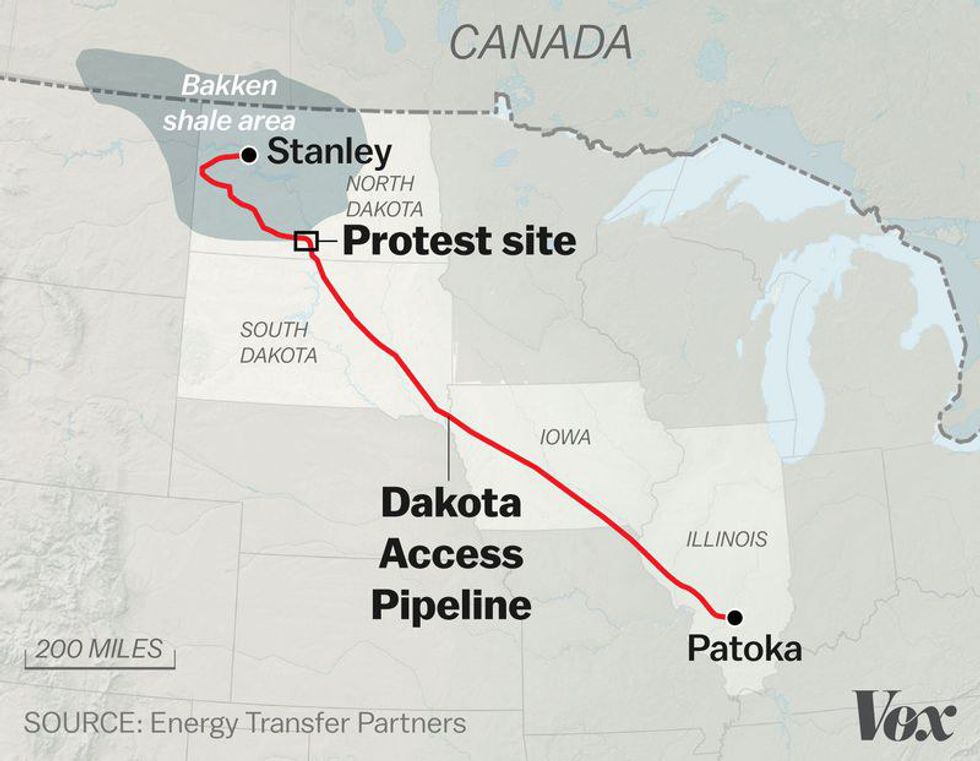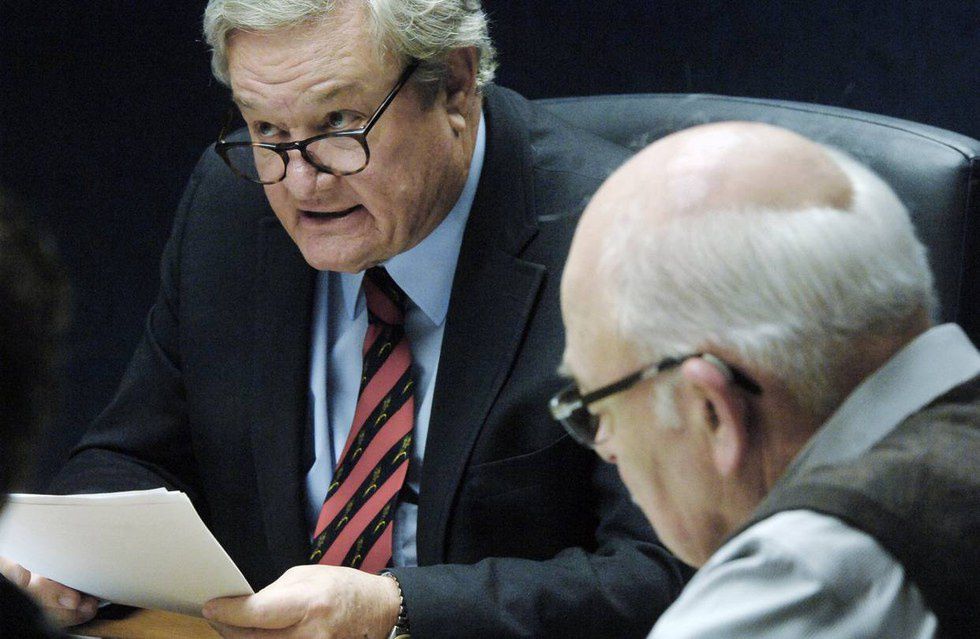Since March of 2016, protesters have been growing larger in numbers in North Dakota protesting the construction of the Dakota Access Pipeline. The pipeline would transport 470,000 barrels of oil a day if completed from North Dakota's 7.4 billion barrel rich Bakken region to refineries across the region. It is currently 75% finished but has been stuck in a legal battle with the Standing Rock Sioux Tribe who argues that the proposed pipeline disturbs sacred native burial sites (along with violating treaty land rights) and would pose a dangerous risk of contaminating the Missouri River, the tribe's primary water source. A pipeline is considered to be a much more safer way of transporting oil than by train or rail car and this particular pipeline is walled with thick coats of steel and the only issue would be human error according to the CEO of the company building the pipeline. So its safe right? In theory it should be but given North Dakota's track record with regulating the oil industry, there should be a lot of skepticism.
The oil rich field in North Dakota that the pipeline will transport oil from
The US is becoming less dependent on foreign oil and has seen its oil import levels cut in half due to states like North Dakota producing their own energy. North Dakota has been a welcoming state to oil companies due to its oil rich fields and having fewer state regulations making it a state with one of the lowest unemployment rates in the country. However, fewer regulations increases the chance of a dangerous accident and in fact the state has seen a good amount in recent years. More than 18 million gallons of oil has been spilled since 2006 which poses a danger to local land and farms and on average a worker dies every six weeks in the Bakkem oil fields. There are only 8 federal compliance officers from OSHA who oversee not just North Dakota but also South Dakota as well. One individual working in the fields worked 69 hours straight handling explosives which would definitely increase the likelihood of human error.
As the US produces more local energy, oil imports fall and more jobs are created
There seems to be no significant sign of punishment either for the oil companies if found of wrongdoing as they are typically given 90% of their fines taken off, with one company having been fined $222,000 by the state but ended up paying only $20,000. Its no coincidence that the industry is the top political contributor for politicians in the state and the fact that North Dakota lacks an established state ethics board to monitor potential corruption. The governor of the state also sits on the state Industrial Commission Board who regulates the oil companies.
Governor Jack Dalrymple (R) scheduling a meeting with the Standing Rock Tribe
Safety is one of the biggest reasons why the Sioux tribe is protesting the pipeline and people across the country from environmentalists, politicians, celebrities, veterans, and local residents are going to the site of conflict to stand with the local tribe. Currently, the standoff continues with protesters and local law enforcement and the case being stuck in legal limbo. President Obama is being briefed every morning on the situation and has urged the Army Corps of Engineers to work and consult with the tribe to explore other routes but his authority over the situation is quite limited and any bold decision he would like to make can easily be overturned by his successor who supports the completion of the project. A lot of safety concerns are not being properly addressed when handling the protesters and the negative consequences if the pipeline were to spill. The pipeline has been rerouted before with the original route being north of Bismarck, the capital of North Dakota, in order to conserve pipe length and due to environmental difficulties. At this point, everything rests on the Army Corps and whether they can find a route that does not violate Native rights and is safe for the environment. A process that is looking to extend into the new year.
At the time of writing this during Sunday night, the pipeline has been halted and the Army Corps has decided to conduct further review on where to route the pipeline giving a temporary victory to the protesters. Hopefully, it can be rerouted to avoid the river and sacred Native land but there are still a lot of concerns and uncertainties in North Dakota law should the pipeline leak. Little regulation, little oversight, in a swarm of deeply divided politics, is a perfect storm for trouble. Make no mistake, the pipeline will still be built no matter what. So if it does spill, who will be held accountable? How many lives would it affect? Only time will tell.





















